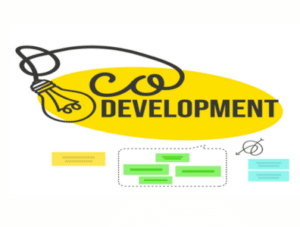Which of the following should be supported by technology? I am unable to state with certainty which particular fields should benefit from technology because this is a difficult and individualized matter with many competing ethical, social, and commercial interests. I can, however, provide some information about the areas in which technology is being utilized now and where it might be employed in the future:
Table of Contents

Current Applications:
Current Applications: Which of the following should be supported by technology?
- Communication and information sharing: which of the following should be supported by technology in has revolutionized communication by enabling instantaneous connections and global access to information.
- Education and learning: By giving teachers and students access to new tools and resources, educational technology improves learning opportunities.
- Healthcare and medicine: From medical research and record-keeping to diagnosis and treatment, technological developments have greatly enhanced healthcare.
- Business and productivity: which of the following should be supported by technology in simplifies procedures, boosts productivity, and encourages teamwork in a number of business domains.
- Entertainment and leisure: There are many different ways to pass the time with technology: from video games and streaming services to social networking and virtual reality experiences
Potential Future Applications:
- Addressing global challenges: In order to address problems like resource scarcity, poverty, and climate change, technology may be extremely important.
- Enhancing human capabilities: Technological developments in areas like biotechnology and artificial intelligence may improve human capabilities and lengthen life spans.
- Transforming industries: Automation and technology integration will probably drastically change a number of industries, possibly displacing jobs and necessitating workforce adaptability.

Additional Considerations on Technology Support
Factors influencing what “should” be supported
- Ethical considerations: Technology shouldn’t violate fundamental human rights, exacerbate existing inequalities, or pose significant risks to privacy, security, or autonomy.
- Social impact: Technology should aim to improve the well-being of individuals and society, promoting inclusivity, sustainability, and responsible innovation.
- Economic impact: While technology can drive economic growth and create jobs, it’s crucial to consider potential job displacement and ensure equitable distribution of benefits.
- Environmental impact: The development and use of technology should minimize environmental harm and strive for sustainability.
Examples of specific areas where the “should” be supported are debatable
- Military technology: While advancements in defense technology might be seen as necessary for national security, the ethical implications of developing and deploying increasingly sophisticated weaponry raise concerns.
- Artificial intelligence (AI): The potential benefits of AI in various fields are vast, but ethical concerns regarding bias, job displacement, and potential misuse necessitate careful consideration before widespread adoption.
- Gene editing: Gene editing technologies hold immense promise for treating diseases and improving human health, but ethical concerns surrounding unintended consequences and potential misuse require caution and responsible development.
- Public discourse: Open and informed public discussions are essential to understanding societal values and concerns regarding technology.
- Involvement of diverse stakeholders: Experts, policymakers, citizens, and various stakeholders should participate in shaping the responsible development and use of technology.
- Focus on principles: Ethical frameworks and principles should guide technological development and use, ensuring alignment with societal values and responsible innovation

Examining Controversial Areas Supported by Technology:
1. Automation and Job Displacement:
- Benefits: Automation can increase efficiency, productivity, and safety in various industries. It can also free up humans for more creative and strategic tasks.
- Challenges: Automation can lead to job displacement and economic hardship for individuals whose jobs are replaced by technology. This necessitates proactive measures like:
- Upskilling and reskilling initiatives: Equipping individuals with the necessary skills to adapt to changing job markets.
- Universal basic income (UBI): providing a guaranteed basic income to support individuals whose jobs are displaced by automation.
- Ethical considerations: The potential societal disruption caused by job displacement raises ethical questions about the responsibility of corporations and governments to manage the transition effectively and ensure fair compensation for those impacted.
2. Social media and mental health:
- Benefits: Social media can foster connections, provide a platform for self-expression, and offer access to information and resources.
- Challenges: Social media use can be linked to increased anxiety, depression, and feelings of isolation, particularly among young people. Additionally, concerns include:
- Cyberbullying and harassment: The online environment can facilitate bullying and harassment, leading to negative psychological consequences.
- Social comparison and negative self-image: Constant exposure to curated online portrayals can contribute to social comparison and negative self-image.
- Ethical considerations: The potential negative impacts of social media on mental health raise ethical questions about the responsibility of platforms to prioritize user well-being and implement safeguards against harmful online behaviors.
3. Artificial Intelligence (AI) and Bias:
- Benefits: AI holds immense potential in various fields, from healthcare and finance to transportation and scientific research.
- Challenges: AI algorithms can perpetuate and amplify existing societal biases based on the data they are trained on, leading to discriminatory outcomes in areas like loan approvals, job applications, and criminal justice.
- Ethical considerations: The inherent biases in AI systems raise critical ethical questions about:
- Transparency and accountability: ensuring transparency in how AI algorithms function and holding developers accountable for potential biases.
- Mitigating bias: Implementing strategies to identify and mitigate biases in AI development and data collection practices.
These are just a few examples of areas where technology support is complex and raises ethical concerns. Addressing these challenges requires ongoing dialogue, collaboration, and commitment to responsible development and use of technology that prioritizes human well-being, equity, and a sustainable future.



